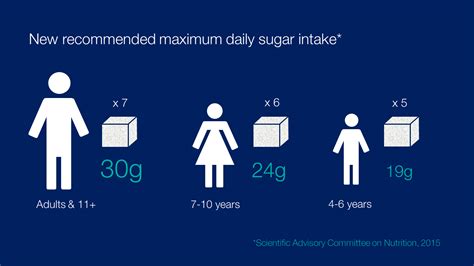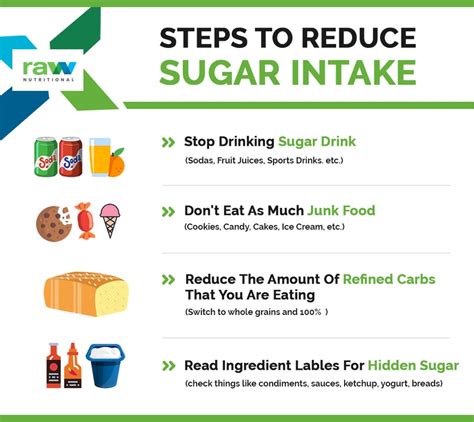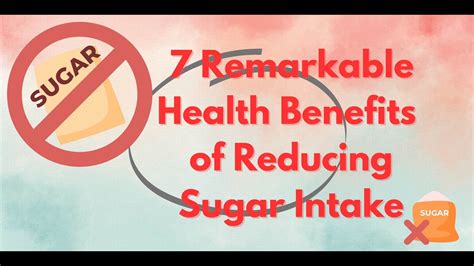Intro
Discover daily sugar value limits and maintain a healthy diet. Learn about recommended sugar intake, added sugars, and natural sugars to make informed choices and reduce health risks associated with excessive sugar consumption.
The daily sugar value limits are a crucial aspect of maintaining a healthy diet. Consuming excessive sugar has been linked to various health problems, including obesity, diabetes, and heart disease. With the increasing awareness of the importance of a balanced diet, many people are seeking to understand the recommended daily sugar intake and how to stay within the limits. The American Heart Association (AHA) suggests that women should consume no more than 25 grams (6 teaspoons) of added sugars per day, while men should limit their intake to no more than 36 grams (9 teaspoons) per day.
The impact of excessive sugar consumption on our health cannot be overstated. It can lead to a range of problems, from energy crashes and mood swings to more severe conditions like insulin resistance and cardiovascular disease. Furthermore, sugary foods and drinks are often high in empty calories, providing little to no nutritional value while contributing to weight gain and other health issues. As a result, understanding the daily sugar value limits and learning how to make informed choices about sugar intake is essential for maintaining overall health and well-being.
In recent years, there has been a growing trend towards reducing sugar intake, with many people opting for low-sugar or sugar-free diets. However, it can be challenging to navigate the complex world of sugar labels and nutrition facts, especially for those who are new to monitoring their sugar intake. With the help of this article, readers will gain a deeper understanding of the daily sugar value limits, the differences between natural and added sugars, and practical tips for reducing sugar intake and maintaining a healthy diet.
Daily Sugar Intake Recommendations

Natural vs. Added Sugars
Natural sugars, such as those found in fruits, vegetables, and dairy products, are generally considered to be a healthier option than added sugars. Natural sugars are often accompanied by other beneficial nutrients, such as fiber, vitamins, and minerals, which can help to slow down the digestion and absorption of sugar. Added sugars, on the other hand, are sugars that are added to foods and drinks during processing or preparation. Examples of added sugars include table sugar, high-fructose corn syrup, and honey.The Impact of Excessive Sugar Consumption

The Role of Sugar in Energy Production
Sugar plays a crucial role in energy production, as it is the primary source of fuel for our bodies. When we consume sugar, it is broken down into glucose, which is then used by our cells to produce energy. However, when we consume excessive sugar, our bodies can become overwhelmed, leading to a range of negative health effects. It is essential to consume sugar in moderation, as part of a balanced diet that includes a variety of whole, nutrient-dense foods.Practical Tips for Reducing Sugar Intake

Healthy Alternatives to Sugary Foods and Drinks
There are many healthy alternatives to sugary foods and drinks that can help to reduce sugar intake. For example, instead of reaching for a sugary snack, try having a piece of fruit or a handful of nuts. Instead of drinking soda or sports drinks, try water or unsweetened tea. By making a few simple changes to our diets, we can significantly reduce our sugar intake and improve our overall health and well-being.The Benefits of Reducing Sugar Intake

Common Challenges and Solutions
One of the most common challenges to reducing sugar intake is cravings. Sugar cravings can be intense, especially for those who are used to consuming high amounts of sugar. However, there are several solutions that can help to overcome these cravings. For example, trying to stay hydrated by drinking plenty of water can help to reduce sugar cravings. Additionally, getting enough sleep and exercising regularly can help to reduce stress and anxiety, which can contribute to sugar cravings.Conclusion and Next Steps

Final Thoughts
Reducing sugar intake is a journey, and it may take some time to adjust to new habits and ways of eating. However, with persistence and dedication, we can overcome the challenges and achieve our goals. By working together and supporting one another, we can create a healthier and more sustainable food culture that promotes overall health and well-being.What are the daily sugar value limits?
+The daily sugar value limits vary depending on factors such as age, sex, and overall health. The American Heart Association suggests that women should consume no more than 25 grams (6 teaspoons) of added sugars per day, while men should limit their intake to no more than 36 grams (9 teaspoons) per day.
What is the difference between natural and added sugars?
+Natural sugars, such as those found in fruits, vegetables, and dairy products, are generally considered to be a healthier option than added sugars. Added sugars, on the other hand, are sugars that are added to foods and drinks during processing or preparation.
How can I reduce my sugar intake?
+There are several ways to reduce sugar intake, including focusing on whole, nutrient-dense foods, reading food labels carefully, and drinking water and other low-calorie beverages. Additionally, trying to stay hydrated, getting enough sleep, and exercising regularly can help to reduce sugar cravings.
